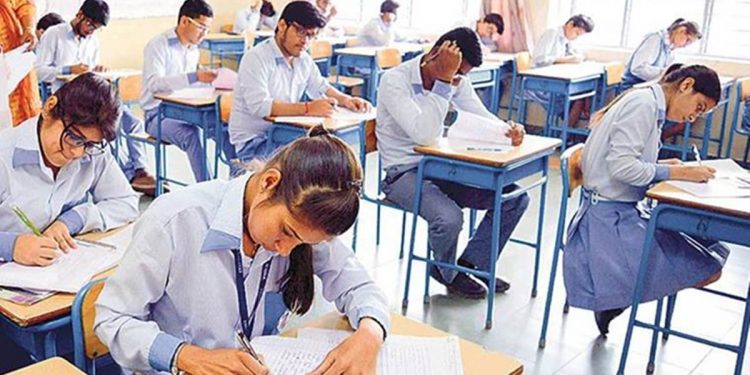Sudarshan Iyengar
The New Education Policy announced after 34 years claims to make way for large scale transformational reforms in education on the foundational pillars of access, equity, quality, affordability and accountability. The announcement needs to be welcomed.
The three outstanding features of the NEP are a) recognition of education for children from class 1 to 5 and preferably up to grade 8 in their home language, mother tongue and regional languages, b) recognition and introduction of vocational education from the 6th grade and c) elimination of science, commerce and arts streams in the old system of what is popularly known as the “ten plus two” system, under which the 10th and the 12th class were critical milestones. That is being replaced by a “5+3+3+4”. This third aspect will ensure freedom to higher secondary students to pursue the higher education of their choice, desire and aptitude once they are out school. Students with good scores and grades may prefer to go for humanities, social and pure science instead of being pushed to professional “career promising” courses by their parents.
The National Conference on Education held in Marwari School in Wardha in 1937 under Gandhiji’s leadership had strongly recommended that we have the mother tongue as the medium for learning in school and education through vocations as an integral part of learning and skill building. It was christened as Buniyadior Nai Talim. The country took 83 years to realise that children learn better in their mother tongues when young and that the development of the brain is positively associated with learning to work with hands.
Vocational education also improves the scope of self employment and employability. The pedagogy for vocational education is left to be developed by NCERT. It has the competence and understanding of Nai Talim and we should hope that Gandhiji and John Dewy’s principle of learning by doing will find space in the pedagogy of the new curricula. Here lies the promise for reaping the demographic dividend, a window of opportunity that exists for the next two decades. But it will have to be delivered. A related point is about the pedagogy for teaching about learning language and computational skills in early childhood up to the age of 10. NCERT should be open and learn from dozens of ongoing scientific and innovative experiments in the country. Let us hope that NCERT will ensure that dismal findings from the ASER [Annual Status of Education Report (Rural) 2019] studies will change. The latest 2019 ASER report notes that only 50 per cent of children in grade 5 in rural India could read a grade 2 level text, and only 28 per cent in grade 5 could solve a division problem.
The announcement and the draft policy document are silent on the structure and finance of school education in the country under the NEP. Universal primary education is no new announcement. Access to all is promised but the structures suggested are unclear. In almost all countries that have a good record in school education, the State is fully responsible to finance school education, and the structure promises school admission to any child in a State or local government-run school in the neighbourhood. The system of private fee charging schools has to be restricted severely to those who have ample resources to invest on their children’s education. Any child in the country must have the right to get admitted to a school which is nearest to her place of residence. School education should thus be compulsory and free and accessible in the immediate neighbourhood. The NEP is silent about this vitally important policy issue in school education. The tacit silence may encourage commercialised, profit oriented and greedy institutions, many of which are already in the system and will move in for the kill very fast.
Ram Manohar Lohia needs to be remembered in this context. Rani ho ya mehatrani, sabke liye ek samaan shiksha (Queen or sweeper, everyone should have the same education). Unless the country follows Lohia’s adage in letter and spirit, education related Sustainable Development Goals would remain a dream.
Gandhiji would have been in pain to read the provision of introducing Sanskrit only as an optional language at all levels from school to higher education under the heading of promotion of languages. Not that he would have any quarrel with Sanskrit; actually, quite the contrary. In this country where an overwhelming majority understand and speaks Hindi-Hindustani for centuries, ignoring Urdu language is an unpardonable omission. Gujarat Vidyapith, a national university founded by Mahatma Gandhi in 1920 had in its school and higher education curricula the Urdu language. Both Sanskrit and Urdu were taught to all children in the secondary school and undergraduate college. Unfortunately, it has discontinued in Gandhiji’s Vidyapith too. Should we be reminded that Urdu is the language developed in Hindustan and not Persian or Farsi? The enlightened Muslims are strongly recommending that the madarsas should join the mainstream education system. Offering Sanskrit alone as an optional subject would have a negative impact on madarsas being persuaded to join the mainstream. Recognition and introduction of Urdu would give a nudge. Such reform is always possible.
An Indian Institute of Translation and Interpretation is a welcome idea. We have lost the opportunity till date to learn from each other in this country with diverse languages and knowledge. Free exchange was hardly possible. There have not been any formal structures to encourage and promote learning from one language and take it to another. The initiative should not be starved for funds and linguists and scholars should keep away from politicising.
Discussing higher education in the NEP would require separate space. However, a few things can be said in this limited space. There is no clarity with respect to the governance structure of higher education. Increasing the gross enrolment ratio to 50 per cent by 2035 will have meaning only if school education settles well and every school graduate has the capability and the skill set to earn a decent livelihood. Higher education should be pursued by those who have the aptitude, the desire and the competence. The government will have to be vigilant that higher education should not become an institution of the rich and elite, by the rich and elite and for the rich and elite. Some poor and deserving may be sneaked in to showcase inclusion. The highlights in the policy announcement point towards such a pattern to emerge, but one should wait for the details to come. The jury is still out.
The writer is a noted Gandhian economist and former VC of Gujarat Vidyapith, Ahmedabad. The Billion Press.






































